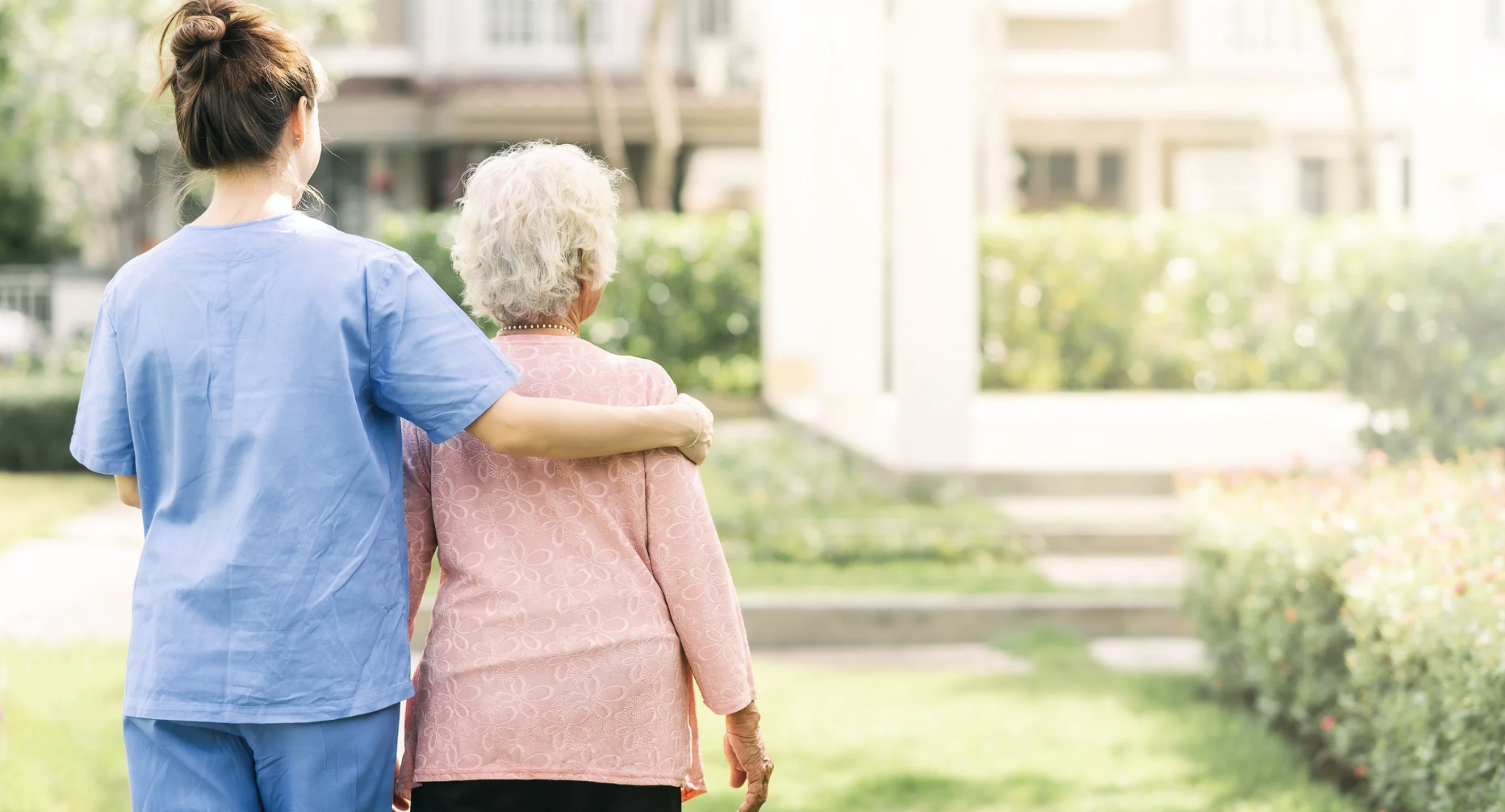Fatmeh Bakhit | Al Enteshar Newspaper
In the golden hues of a California morning, Ramma Mohammed prepares for her day.
At 35 years old, this Arab American woman has dedicated over five years to in-home support care — a vocation born out of necessity but fueled by deep compassion. Her story and the broader narrative of home health care providers weave through the very fabric of society, serving as the backbone for those who need it most: older adults and people with disabilities.
Day-to-day challenges and rewards
Every day, Mohammed steps into the homes of her clients, each visit beginning with a warm greeting that belies the myriad challenges she faces. As she knows well, home health care is not just about medical support; it’s about building relationships, offering emotional comfort, and enhancing the quality of life for her clients.
Her role varies widely — from administering medication to helping with daily chores, and from managing chronic conditions to providing company.
“The physical and emotional toll is real, but so is the joy of making a difference in someone’s life,” Mohammed explained, reflecting on her daily experiences.
Motivation behind the service
Mohammed’s motivation stems from a personal place. Having witnessed the struggles of her own aging relatives, she felt a calling to ensure that others wouldn’t have to endure similar hardships alone.
This personal connection fuels her daily perseverance and her empathetic approach to care. For Mohammed and many other caregivers, the job is more than a list of tasks — it’s an opportunity to make a tangible difference in someone’s life.
“I was drawn to this work because of my family. It feels like I’m extending the care I wished my grandparents had,” said Mohammed.
Perception and impact
How is Mohammed viewed by those she helps?
To her clients, she is often seen as a lifeline, a source of stability and compassion in their most vulnerable moments. Her presence is comforting, her care invaluable.
But the perception does not end there.
In the broader scope, home health care workers often remain unsung heroes. Their essential contributions to individual lives and the community often go unnoticed by the larger public.
“My clients see me as part of their family, and that’s a big responsibility,” Mohammed noted. “Outside, not everyone understands the scope of what we do.”
Within her own family and the Arab American community, Mohammed’s choice of career has mixed receptions. Traditionally, caregiving within these contexts is viewed as a familial obligation, undertaken without expectation of pay or professional recognition.
However, as Mohammed and many like her professionalize this role, perceptions are gradually shifting. The understanding and appreciation of professional caregiving as a vital and skilled service are beginning to take root.
Advocating for recognition
The history of home health care in the United States reveals a slow but steady recognition of these workers’ vital role. Initially informal and unrecognized, the sector has evolved, particularly as the population ages.
By 2030, one in four Californians will be older adults or individuals with disabilities, highlighting the growing demand for skilled caregivers like Mohammed.
“In our community, caring for the elderly was always expected to be a family’s duty. Now, we’re starting to see it as a professional and essential service,” she commented on the evolving cultural recognition of her work.
The role of caregivers like Mohammed is critical, yet their contributions often go unrecognized in broader societal narratives. Without a formal platform, the responsibility to advocate for recognition and support falls on the community and healthcare leaders.
Highlighting Mohammed’s contributions is essential not only for the appreciation she deserves but also as a means to enhance the overall recognition of all home health care workers.
“We need to talk more about what we do and why it matters — not just for us, but for society as a whole,” Mohammed said, advocating for greater awareness and support.
Expanding the narrative
As the narrative around home health care evolves, it becomes crucial to incorporate the diverse experiences and backgrounds of caregivers into public discourse.
Mohammed’s story sheds light on the unique challenges faced by caregivers who come from culturally rich backgrounds. These caregivers bring a blend of traditional and modern caregiving methods that enrich their practice but may also present unique challenges in terms of integration and acceptance both within their communities and the broader healthcare system.
“Blending my cultural heritage with modern caregiving practices gives me a unique perspective that I bring to my work every day,” Mohammed said, highlighting the enrichment that diversity brings to her profession.
As California prepares to meet the needs of an ever-growing demographic of older adults and people with disabilities, recognizing and supporting caregivers like Mohammed is not just beneficial — it’s imperative.
Through her story, there lies the potential to transform public perception and policy, ensuring that these caregivers are celebrated not just as workers, but as foundational pillars of healthcare and community support.
“It’s about dignity—for my clients and for my profession,” she said. “We are here to care, and that matters.”
CalGROWS is an expansive state program that allows home health workers like Mohammed to earn up to $6,000 for learning and using new skills. However, time is running out for caregivers to sign up, as the program ends in August.
Caregivers can sign up for the program online at CalGROWS.org, by phone at (888) 991-7234 or by email at help@calgrows.org





